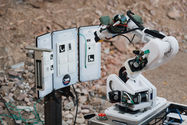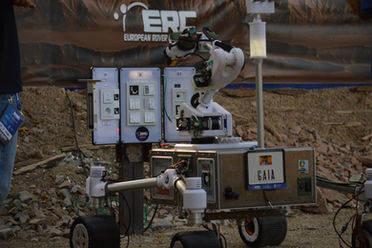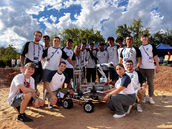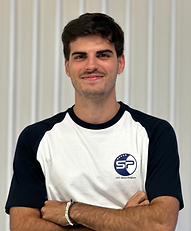

Space Robotics
The GRound Autonomous Student Station (GRASS) aims to familiarize students with space
robotics through the design and development of an autonomous rover capable of terrain
recognition, sample collection, and obstacle avoidance.
This multidisciplinary mission includes members from various fields such as aerospace,
industrial and electrical engineering, geology, among others. Additionally, most of the rover's
systems and components are internally designed and developed in collaboration with external sponsors.
Initiated in 2017 with the construction of GRASS V1, the mission was temporarily interrupted
due to a lack of personnel. Subsequently, the team resumed their efforts to complete GRASS V1 and participate in the UAV Challenge 2020, which was eventually canceled due to the global epidemiological situation.
Following this, the team redirected their efforts toward the European Rover Challenge (ERC). In 2021, GRASS V2 successfully qualified and achieved tenth place in the competition. The following year, with a completely redesigned rover named GRover, the team improved their results, securing ninth place. Later, at ERC 2023, the team competed with Grover-To, finishing in sixteenth place. In 2024, using GAIA, the team improved seven positions after a tight qualification round, ultimately achieving twentieth place.
Currently, the mission's primary objective is to qualify once again for ERC 2025, as competition has significantly intensified in recent years. To achieve this, several enhancements are being implemented in GAIA, including an advanced autonomous navigation system and a new mechanism for soil sample extraction.





























_HEIC.png)
_HEIC.png)
_HEIC.png)
_HEIC.png)
_HEIC.png)

_HEIC.png)
_HEIC.png)
_HEIC.png)
_HEIC.png)
_HEIC.png)
_HEIC.png)
_HEIC.png)
_HEIC.png)






_HEIC.png)
